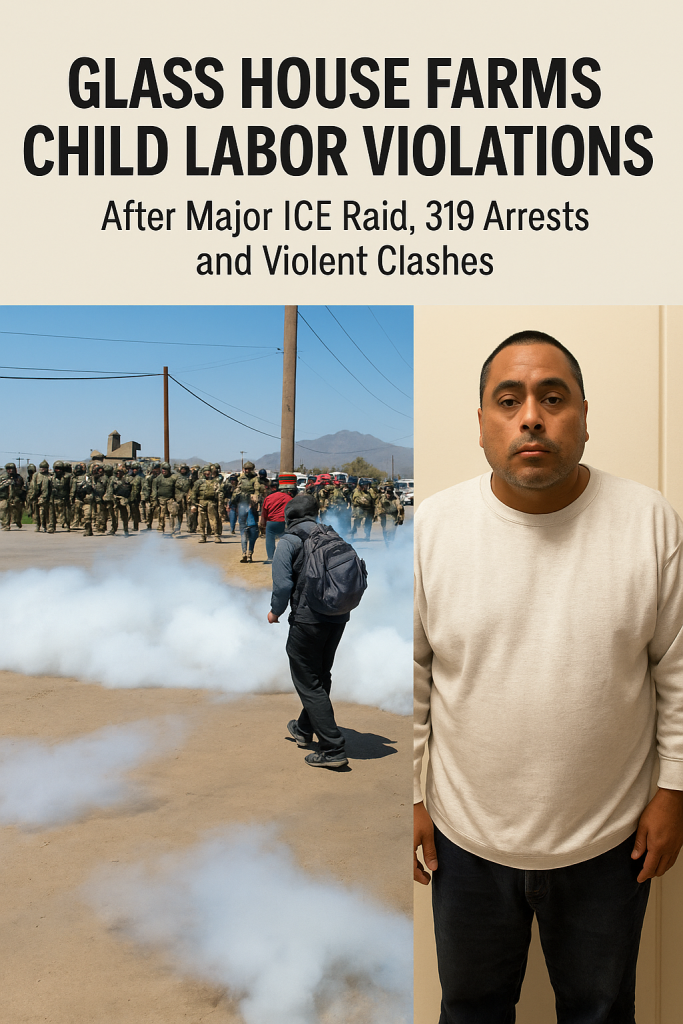California’s Glass House Farms has become the center of a major legal and human rights controversy following a sweeping Immigration and Customs Enforcement (ICE) operation that led to the arrest of 319 individuals and ignited violent protests. The farm, a significant player in the state’s agricultural sector, is now the subject of a formal investigation into alleged child labor violations, compounding the fallout from the recent enforcement action.
The ICE raid, conducted in early 2024, targeted workers suspected of immigration violations. What began as a large-scale immigration enforcement effort quickly escalated into chaos, with reports of confrontations between ICE agents and protesters opposing the operation. Authorities released the figure of 319 arrests, marking the operation as one of the largest of its kind in the region.
During the raid, tensions flared sharply as community members and labor advocates rallied against the enforcement measures, fearing the impact on workers and their families. Violent clashes were reported, underscoring the deep divisions and emotional stakes surrounding immigration and labor practices within the farm sector.
Amid this turmoil, investigators uncovered troubling allegations that Glass House Farms may have employed underage workers in violation of child labor laws. The investigation is currently underway, with labor officials scrutinizing working conditions, age documentation, and employment records. If proven true, these violations could lead to significant legal repercussions for the farm management and fuel broader calls for reform of labor practices in agricultural industries.
Glass House Farms, renowned for its contribution to California’s produce output, faces fierce criticism not only for the potential labor law infractions but also for the broader ethical and human rights implications tied to the ICE raids. Advocates argue that the raids have exacerbated vulnerabilities among farmworkers, many of whom come from immigrant backgrounds and rely on these jobs to support their families.
Legal experts emphasize the complexity of the situation, highlighting the intersection between immigration enforcement and labor rights. “This case shines a spotlight on the ongoing challenges faced by agricultural workers, particularly those who are young or undocumented,” said a labor law analyst. “The presence of child labor, if confirmed, violates state and federal protections designed to safeguard minors from exploitation.”
Community leaders and advocacy groups have called for transparent investigations and immediate measures to protect workers from exploitation and ensure compliance with labor laws. There are also demands for ICE to reconsider the human cost of enforcement operations in sensitive agricultural communities.
The state government has pledged to closely monitor the investigations and take appropriate action. Meanwhile, efforts to mediate between affected workers, farm management, and enforcement agencies are underway to prevent further violence and social unrest.
As the probe progresses, the Glass House Farms case stands as a potent reminder of the fragile balance between maintaining legal labor standards and enforcing immigration laws, with the lives of immigrant families hanging in the balance.
This developing story continues to capture national attention, prompting a broader dialogue about child labor, workers’ rights, and immigration policy reform within the agricultural sector and beyond.



